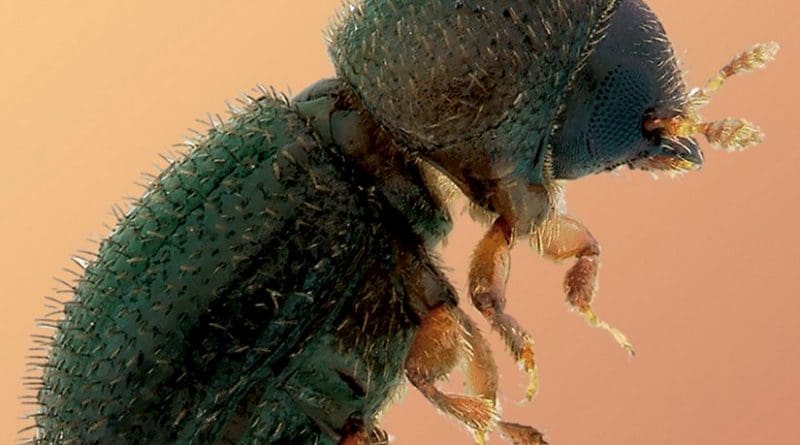This Tiny Coffee Pest Can Consume Enough Caffeine That Would Kill A Human
The coffee berry borer is a plague that affects coffee crops, but amazingly this beetle has a detoxification system that allows it to safely consume the equivalent of 500 espressos, a level so high that it would kill a human.
This is the finding of Mexican researcher Javier A. Ceja Navarro, as part of his work in the Berkeley National Laboratory (US) where he extracted DNA from the beetles, then sequenced it to study the insect-associated microbes.
In his first results he disclosed that the insects, although feeding from the coffee grain in several countries, have different microbial communities, sharing just a set of 19 species of bacteria.
“The aim was to study which are they and how they are associated with the digestive tract of the insect. For the study we took samples of insects from different locations like Hawaii, Indonesia, Puerto Rico, Mexico, Kenya, India and Guatemala,” Ceja said.
Considering this insect’s capability, the specialist in biotechnology decided to study microbial communities associated with the digestive system of the beetle native to Africa, and which has the virtue of surviving such exposure to this kind of substances.
In the second part of the research, Ceja extracted the digestive tract of the insect and isolated 13 species of bacteria with the ability to survive only with caffeine.
Once discovered that the coffee berry borer has this amount of bacteria able to live actively on caffeine, the researcher took the task of finding out whether it was possible to control them.
After analysis, the team decided to test antibiotics on the borer beetle, to see if it was still able to degrade caffeine and the result was negative.
“We removed the microbial communities in the digestive tract and the transformation of caffeine stopped, then decided to take some of the isolated microorganisms, reintroduce them in the bug and see if the ability to degrade a bit of caffeine came back and it did,” Ceja said.
Currently, the team is trying to develop new strategies to control the microbes that support the destructive ability of the coffee berry borer. “We look to take away the beetle’s taste for coffee and for it to be affected by consuming it like any other insect would,” said the researcher.
The research team will study the entire genome of the microorganisms in the digestive tract of the beetle to understand their mechanisms, and test the development of small chemical molecules that would only affects the coffee berry borer.
Berkeley National Laboratory is interested in continuing this project because of the impact it may have to mitigate the damage caused by the borer to the coffee crops.
The specialist said that the next stages of research for the development of chemical molecules could take up to two years to have a final product approved and ready to be used in the control of the coffee berry borer.
Source: Agencia ID

